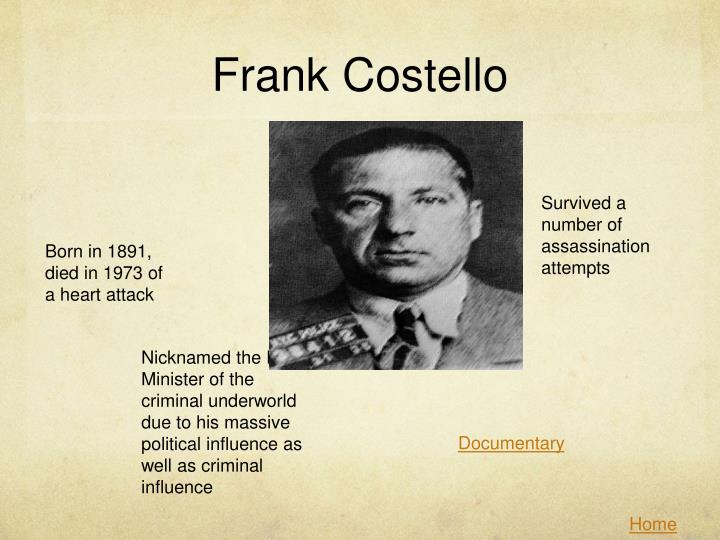Gambling Related Crimes
Looking ahead, the Howard League now plans to conduct its own research, in three strands. The first project will look at the prevalence of gambling-related crime, while the second will focus on consider the experience of people caught up in the system, and the third sentencers’ awareness of the issue. The excellent ‘Gambling Reform and Society Perception (GRASP)’ group have updated their forum pages on gambling related crime. It now runs to 10s and 10s of pages, but the government chooses to let the industry expand unfettered (click on green text). CG’s jailed for fraud and theft news!! NEVER ENDING Source: CG’s jailed for fraud. Money laundering was another way in which organized crime was forced to get far more organized. When gambling was legalized in Nevada in 1931, loads of Prohibition-era mob money was funneled into.
- Gambling Related Crimes Committed
- Gambling Related Crimes In The News
- Gambling Related Crimes Articles
Gambling Related Crimes Committed
The latest crime statistics, released yesterday, show that police authorities filed 3,502 criminal reports in the first quarter of 2017.
This figure represents an increase of 169 cases (5.1 percent) compared to the same period last year. Gambling-related crimes have also increased, involving the arrest of 445 people compared to 424 within the same period last year.
Secretary for Security, Wong Sio Chak, said during a press conference yesterday that 219 cases of fraudulent business were reported, a 28.8 percent increase compared to the same period last year.
In particular, phone scams increased from 9 to 22 cases. Until this point, phone scams have led to MOP 24.99 million in losses.
Scammers were mainly perpetrated by criminals pretending to represent governmental departments, according to Wong.
These scams were primarily based in Southeast Asia, and Africa where people changed their numbers and pretended to be from local government authorities.
Property crimes saw a slight decrease of 1.3 percent, corresponding to a total of 1,890 cases.
Robbery and theft have decreased remarkably by 37.9 percent and 7 percent respectively.
Blackmail and usury saw a relatively significant decrease of 42.3 percent and 16 percent, respectively.
Regarding so-called “crimes against society,” a total of 288 cases were reported, representing an increase of 54.8 percent.
In particular, arson increased by a whopping 650 percent. Though the first quarter of 2016 saw only two arson crimes, this year already counts 15.
Cases of reselling fake currencies increased to a total of 95 from last year’s figure of 50, a growth of 90 percent involving a total amount of MOP 8.8 million.
Regarding violent crimes, there were 191 cases registered in total, representing a 5.5 percent increase.
Some 105 of these cases were related to illegal imprisonment, which alone represents 18 percent of the total number of violent crimes.
According to the authorities, murder, kidnap and aggravated assault continue to see low numbers, with only one case in this category recorded in the first quarter.
Also in the first quarter of this year, 1,822 people were arrested and forwarded to prosecution, an increase of 207 people, or 12.8 percent, compared to the same period last year.
Regarding juvenile delinquency, 14 cases were reported, 2 fewer than last year; 15 individuals involved in these cases were minors, 13 fewer than last year.
According to the data, human smuggling and overstaying in the city slightly decreased.
The police force recorded 1,291 cases related to violation of transportation regulations, a slight increase from the 1,277 cases registered last year.
As many as 723 cases involved taxis overcharging customers, while 359 cases related to drivers refusing to take passengers.

The two figures represent 56 percent and 27.8 percent respectively of the total number of transportation infractions.
Ban of Hong Kong visitors not motivated by politics
The Secretary for Security, Wong Sio Chak, clarified that preventing specific Hong Kong visitors from entering the city was not because of political reasons.
Wong further explained that barring these people entry to Macau at the border gate was the result of police procedure in accordance with the law.
“The police force makes decisions based on evaluations of possible threats to the city’s security posed by visitors,” Wong indicated, adding that Macau is not alone, as “all regions around the world behave like this.” Wong further claimed that in comparable jurisdictions, individual evaluations are carried out in order to eliminate threats to the internal security.
Gambling Related Crimes In The News
In Wong’s words, the Macau police “has the right to refuse entry to all those who are unwelcome and [may] harm the society. Every region is very strict in terms of border controls.”
Regarding the exact number of people who have been banned from entering Macau, Wong said that “the number will not be disclosed for confidentiality” but he guaranteed that “it [the number of bans] is in line with international practices.”
PHILADELPHIA (AP) — Fifteen alleged members and associates of the south Philadelphia and southern New Jersey organized crime family face federal racketeering and related charges.
According to a superseding indictment unsealed Monday, the defendants engaged in racketeering conspiracy, illegal gambling, loansharking, extortion and drug trafficking.
Federal prosecutors allege the crime family sought to use its “reputation and influence to exercise control over criminal rackets, like bookmaking and loansharking, in Philadelphia and southern New Jersey, particularly Atlantic City.”
“The Philadelphia mob isn’t what it used to be, and thank God for that,” said U.S. Attorney McSwain in a statement. “But it is still a problem and is still allegedly committing serious federal crimes.”
Gambling Related Crimes Articles
Ten of the defendants are accused of engaging in racketeering and collecting unlawful debts. The remaining five are accused of running an illegal gambling business, conspiring to make extortionate extensions of credit and conspiring to distribute controlled substances.